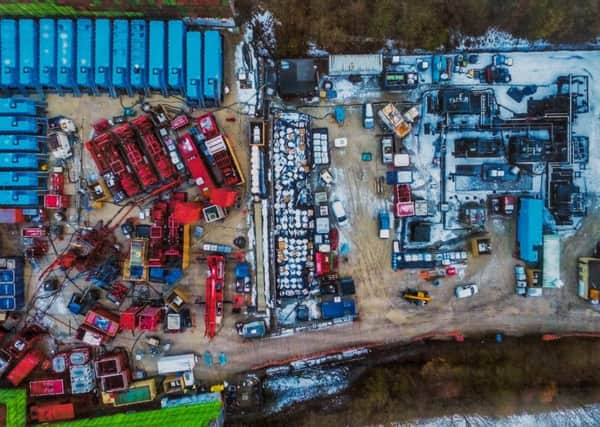Samuel Ribansky: Why Brexit also means fracking if Britain is to secure energy independence


While understandable under different circumstances, I would have expected the Brexit-voting regions to have assumed a more favourable attitude towards fracking. There are a number of reasons for the aforementioned assumption, as well as the assumption that the UK needs fracking.
First, there is a strong climate case for fracking. Second, with Brexit looming, energy security is becoming a big concern. Lastly, fracking has become a lot safer since the last tremor. As a matter of fact, it has become revolutionary
Advertisement
Hide AdAdvertisement
Hide AdAmong the primary concerns of activists and local citizens are environmental concerns. These are two-fold, starting with methane emissions (gas-specific) and secondly with CO2 emissions once the fracked gas is burned. Then there are tremors, but we’ll get to those later.
So what then is the first reason why the UK needs fracking? Paradoxically, it is for its environmental benefits. Since the 1990s, the UK has been hailed as the leader in the coal-to-gas shift. Though unintended at first, the environmental benefits are indisputable.
The UK was the first EU member state to have a coal-free day when all of its electricity came from either nuclear, gas, or renewable sources. However, coal still competes with gas as a base-load capacity mechanism.
In simple terms, this refers to backup energy sources that are used for generating electricity when the sun doesn’t shine and the wind doesn’t blow. Therefore, the UK needs fracking to ensure a consistent supply of gas to its capacity mechanisms to avoid excessive pollution by coal capacity mechanisms (it’s slightly more complicated, but these are the nuts and bolts).
Advertisement
Hide AdAdvertisement
Hide AdOf course concerns about the impact of methane emissions from the production and transportation of natural gas remain. These, however, become increasingly weak as research progresses. According to Equinor (formerly Statoil), only when peak methane emissions of gas are accounted for are its environmental advantages offset.
Due to the short distance the fracked gas would have to travel from the well to the plant, this is highly unlikely.
While there is no doubt that the environment should be a strong motive for why people should (or should not) support fracking, the other argument is on energy security. It is perhaps the prime argument for fracking. And it is amplified by the one issue, aside from the recent World Cup, that everyone has an opinion on – Brexit.
The UK needs to frack, because otherwise it will face a gas shortage to say the least. And don’t forget the price hike if the UK doesn’t frack.
Advertisement
Hide AdAdvertisement
Hide AdAs it stands, there are currently three EU-UK gas interconnectors and four EU-UK electricity interconnectors ensuring that, if the UK cannot produce a sufficient amount of energy, it can buy energy from EU countries as per the EU’s internal energy market (IEM).
Because energy arrangements have only been mentioned in passing during the Brexit negotiations, it’s uncertain whether the UK will stay as a member of the IEM. If Theresa May’s European Court of Justice red line stays, it won’t. Subsequently, coupled with the closing of Centrica’s Rough Patch gas storage facility, leaving the IEM will impact the UK’s energy security negatively.
The UK could then potentially move on to import American shale (fracked) gas, or continue buying from Europe with added tariffs. Because Asian markets pay a (large) premium on Liquefied Natural Gas (LNG) imports and no special energy deal has been forged with the EU, this could easily amount to steep energy price hikes.
We also mustn’t forget fuel poverty – increasing energy prices would definitely not accelerate efforts to combat this.
Advertisement
Hide AdAdvertisement
Hide AdTherefore, the UK must frack. It is environmentally viable and necessary for energy security. Natural gas emits only half the CO2 of coal and our shale reserves are sufficiently large to meet the UK’s gas demand for decades to come.
Public anxiety over fracking is by no means ‘scaremongering’, as a certain CEO has called it. It is very much warranted, as the only experience the UK has had was a negative one. It entailed an earthquake measuring 2.3 on the Richter scale. However, research has moved on, and fracking should be given a chance.
Given Brexit, fracking must be seriously considered if UK wishes to retain its energy security – how else will people comment on the success/failure of Brexit and share videos of our World Cup heroes if no one will be able to charge their phone due to an energy shortage?
Samuel Ribansky is politics graduate from the University of Sheffield. He specialises in Euroepan affairs.